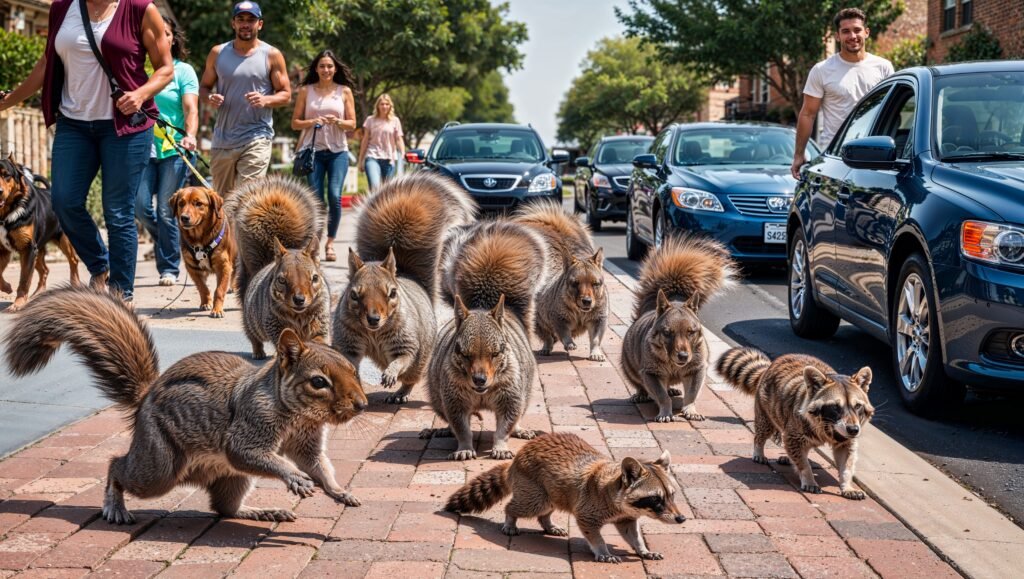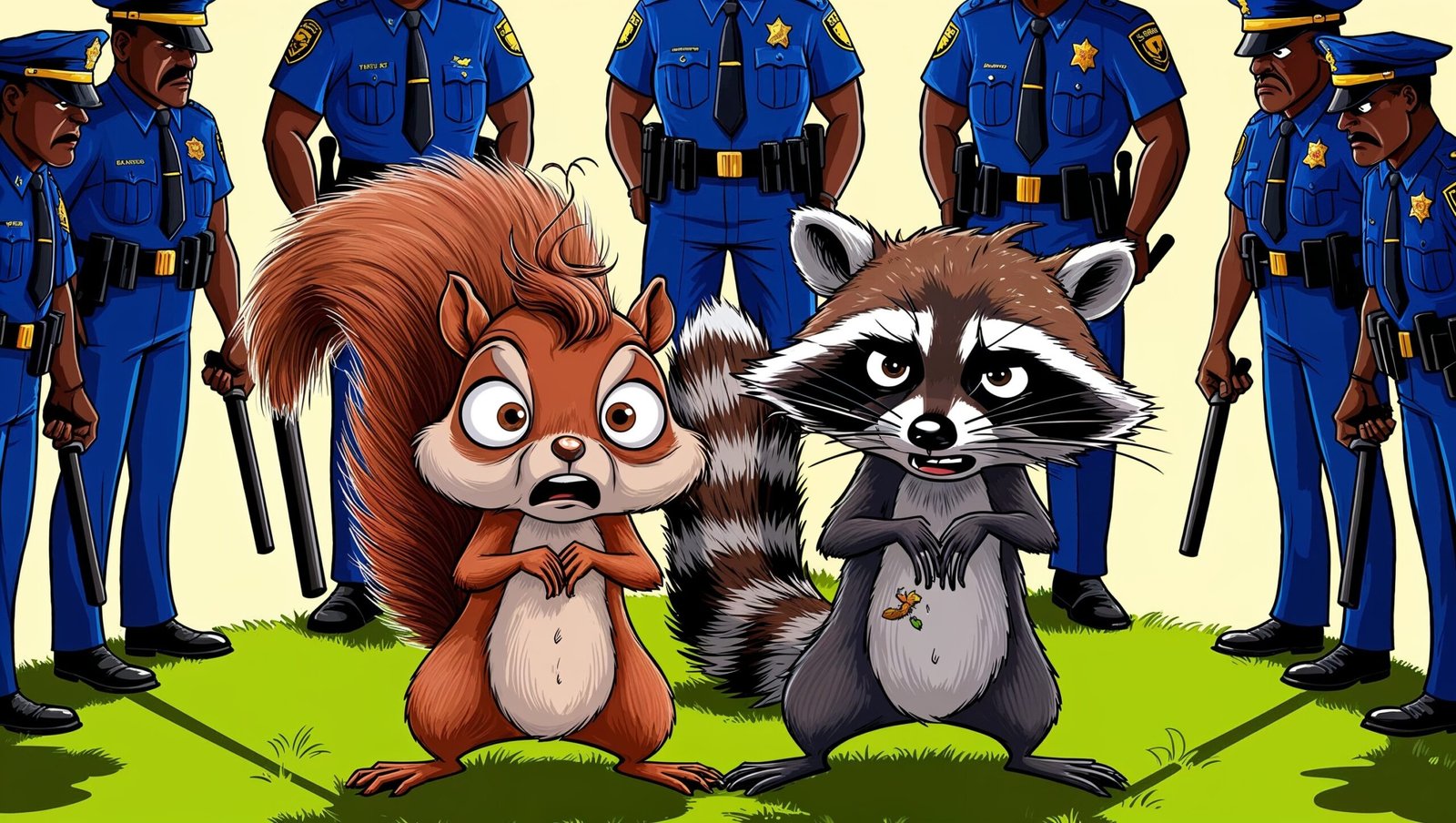Compassionate Wildlife Management in the Heartland
THE RECENT EUTHANIZATION of Peanut the Squirrel and Fred the Raccoon in New York has ignited a national conversation about urban wildlife ethics. While this event happened far from our Oklahoma prairies and rolling hills, it serves as a poignant reminder to examine our attitudes and laws regarding the creatures we share our environment with.
In New York, public outcry echoed from animal lovers everywhere: the decision to euthanize these beloved critters was both extreme and unnecessary. Peanut and Fred captured millions online, becoming beloved internet sensations, and eliciting joy and companionship from those who encountered them online. Their tragic end raises serious questions about how we manage urban wildlife and the necessity for reform in our approach to these situations.
As a result of this incident, there is a pressing legal question as to how state officials executed their search warrant. Citizens are protected from unreasonable searches and seizures under the Fourth Amendment to the United States Constitution. It is possible to issue wildlife removal warrants, but the implementation of such warrants must always take individuals’ rights and the context into account. If not, we must advocate for stronger legal safeguards to protect residents from potential overreach by wildlife authorities. We must also make sure that these officials behaved in a manner that respected privacy and was within the law.
Wildlife has a unique relationship with Oklahomans. From the majestic elk in the Wichita Mountains to the charming squirrels rustling through our backyards, animals that call our state home are deeply ingrained in our lives. The reality is, however, that our laws and practices do not always reflect our compassion for these creatures.
The incident in New York sheds light on a couple of vital areas where we, as a community, could improve our wildlife management strategies:
- Humane Treatment Guidelines
Oklahoma lacks explicit guidelines for urban wildlife humane treatment. Many residents feel conflicted when confronted with sick or injured animals. Clear community protocols—established by local wildlife authorities and animal welfare organizations—could provide citizens with the knowledge and resources needed to respond effectively, rather than resorting to euthanasia. Our state could look to establish a network of rehabilitation centers where animals can receive care. In addition, it could educate the public on the importance of coexistence.
- Legal Framework Enhancements
Although Oklahoma has wildlife protection laws, they are largely geared toward hunting and conservation. Recent events in New York highlight the need for more comprehensive regulations that address wildlife management in urban areas. In the event of an incident involving wild animals, authorities should prioritize humane treatment over euthanization, especially if those animals show no signs of serious illness.
It is imperative that we advocate for legislation that empowers animal welfare organizations to intervene in situations where wildlife is at risk, ensuring that humane alternatives are always considered.

- Community Education and Involvement
Education plays a pivotal role in changing public perceptions of urban wildlife. We can learn from community-led initiatives that have successfully fostered understanding and respect for local wildlife. Engaging our schools, community centers, and local governments in wildlife education programs can inform residents about the ecological roles these animals play. This will enable them to learn how to live alongside them.
Oklahoma communities can also benefit from initiatives like “Wildlife Days,” where families can learn about their local ecosystems, visit rehabilitation centers, and understand how to interact responsibly with wildlife. Strengthening our bond with the creatures we share our environment with offers ecological and educational benefits.
- Encouraging Urban Resilience
Urban animals, like Oklahomans, can adapt to rapidly changing environments. As we build our cities and communities, we must seek to create spaces that allow continued coexistence with wildlife. This can range from incorporating green corridors and protected habitats in urban planning to ensuring wildlife has safe passages through our developments. We must not forget that a thriving ecosystem enriches our lives too.

A Call for Safety and Preparedness
Additionally, we must address the glaring oversight in the approach taken by New York state officials during the seizure of Peanut and Fred—namely, the failure to use Personal Protective Equipment (PPE). In environments where wildlife may be present—especially when disease transmission concerns exist—appropriate protective gear is not just a recommendation; it is necessary.
Exposing professionals and volunteers to potential health hazards not only endangers their well-being but also affects the animals being handled. Wildlife appears healthy, but many diseases can be asymptomatic. For humans and animals, protocols must include proper PPE such as gloves, masks, and protective suits. In Oklahoma, we must advocate for training programs that equip wildlife handlers, volunteers, and humane organizations with the knowledge and gear needed to safely and ethically manage wild animals.
Conclusion
Peanut and Fred’s heartbreaking fates serve as both a cautionary tale and an opportunity for growth. Let Oklahoma be a state that leads by example, fostering a compassionate environment for our wildlife neighbors. By adopting humane practices, enhancing our legal framework, prioritizing education, encouraging urban resilience, and ensuring proper safety measures, we can create a culture that values and protects the creatures who add life to our state. Together, let us ensure that no animal suffers from neglectful management in our communities.

